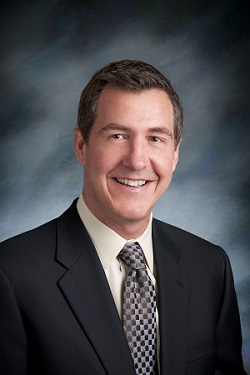The top health insurance brokers don’t simply convey policy terms and costs-you help your clients make major decisions about their health and well-being.
BY RICK BEAVIN
After more than a year of unprecedented challenges in healthcare, there is a demand for brokers who fully under stand member needs. Just as the state of healthcare is constantly advancing, brokers, too, must be sensitive to members’ needs for change and committed to improving services to ensure members remain at the center of every decision.
As we approach what is sure to be another atypical period for health insurance brokers, here are four key “members first” approaches to retain your clients and attract new prospects.
- Provide plan options that show you understand the member’s needs.
The best health insurance brokers do more than relay insurance quotes — they are committed to aligning benefits with a member’s unique medical and financial needs — as well as their personal preferences. It is important that you are familiar with new suites of products and enhancements year-over-year so you can identify what’s best for each member to help them maintain their health and be happy. Some consumers may be comfortable with their current plan, but you can proactively look for new coverage offerings that may be better suited for them.For example, if you’re developing a portfolio of health insurance options for a military veteran, look for plans that were designed for former members of the armed forces. These may complement the benefits they receive from the Department of Veterans Affairs, such as the Humana Honor Medicare Advantage plan. (Medicare eligible veterans can select any Medicare Advantage plan and Humana Honor plans are available to all individuals eligible for Medicare.)Oftentimes, moving from one plan to another will allow brokers to retain the member’s business, get their residuals and most importantly, ensure the member will have the best plan for them in the coming year. - Present solutions that address consumer health care challenges.
As brokers help members under-stand healthcare benefits packages, it’s important to thoughtfully identify options that address both obvious and subliminal needs, especially for seniors and those with disabilities. For example, there are a variety of added considerations to take into account when creating a portfolio for consumers who are homebound. Food insecurity became a heightened issue for millions of Americans at the start of the COVID-19 pandemic, and benefits included in some DSNP programs helped dual-eligible members gain increased access to food from the safety of their homes.Telemedicine is also an increasingly popular benefit to help doctors and patients connect in a convenient and low-risk manner. While some members may want to return to the doctor’s office for a visit, others — especially those who are immunocompromised — may have increased concerns as COVID-19 variants spike. Telemedicine is also an added convenience and safeguard for members who travel, allowing them to connect with their doctor regardless of location. These are all points a member may not realize they should take into account, but you certainly should.
- Consider new ways to identify and connect with members where they are.
Americans quickly adapted to virtual meetings to safely connect with friends, family and colleagues during the height of the pandemic, and many members will still welcome this method of connection come AEP season. Virtual platforms remain a convenient way to connect with others, especially health insurance brokers, who may not always need an in-person meeting to effectively discuss plan options and questions, depending on the member’s preference.To diversify your services, look for unique ways to identify and engage members, such as one-on-one virtual sessions, open forum meet-and-greets or direct mailers offering meetings by phone in areas where internet connectivity may be a challenge. I’d also encourage you to consider grassroots efforts. For example, Humana has Mobile RVs for two offices in Northern and Southern California, so beneficiaries can meet with brokers right in their community. Aim to make yourself available in members’ neighborhoods to connect in a way that best suits their individual limitations or preferences. - Help bridge the gap between healthcare benefits and minority communities.
With diversity, equity and inclusion being a priority, it’s important to carry through this element in your communication efforts. Brokers serve a critical role by connecting consumers to benefits that support their health and wellbeing and should consciously address unseen barriers that make it difficult for people to choose an ideal health plan. Using strategies that cater to diverse audiences, more Americans will be given an equal opportunity to choose optimal health plans.Take notice of challenges your clients may face, based on where they live and what they have access to. For example:If members express difficulty traveling to doctor’s appointments, look for plan options that would meet their health needs and may also have a transportation benefit.If food security is a concern, check to see which plans would best meet their needs and may also offer a grocery card.
Options like this show you have the member’s quality of life top of mind and will differentiate your services, ultimately casting a wider net to get beneficiaries enrolled in the plan that’s best for them. If there is a language barrier between you and your clients, look for resources that can help. For example, Humana has brokers who speak many languages, including Spanish and Korean, to ensure they can cater to various cultures and answer member questions directly.The top health insurance brokers don’t simply convey policy terms and costs — you help your clients make major decisions about their health and well-being. By having a member first mentality, there’s no doubt you’ll expand your customer base and ensure more Americans make better, more informed health plan choices in the future.

RICK BEAVIN is Humana’s Medicare President for California and Nevada. In this role, Beavin is responsible for oversight of Humana’s Medicare HMO and PPO health plans, prescription drug plans, Medicare supplement policies, and private fee-for-service health plans offered to those eligible for Medicare. Reach him at 1-949-777-8853.
